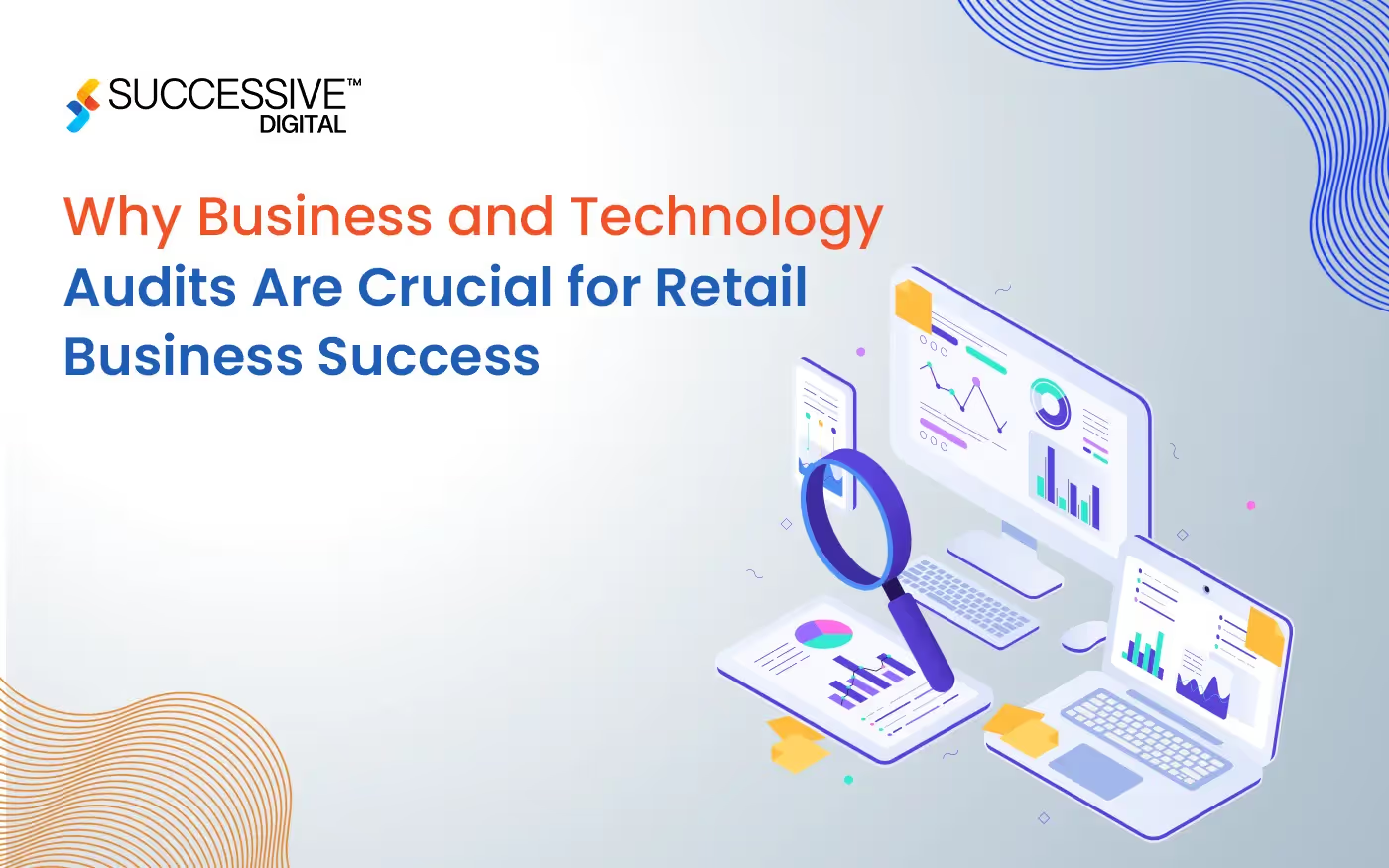The fast pace of technological advancements, changing user preferences, and evolving regulatory environments globally present both challenges and opportunities for organizations. To navigate this complicated environment effectively, retailers want to ensure that their operations, working models, and technology function at optimal levels. This is where business and technology audits come into play, serving as a crucial tool to keep performance, compliance, and competitiveness high. These audits offer a detailed assessment of a business processes, and the technology used in existence, helping businesses discover strengths, weaknesses, and possibilities for improvement.Furthermore, these audits help businesses live agile, adapt to new technologies, and use technological improvements for overall growth, successfully. Whether it is enhancing the consumer experience, optimizing supply chain management, or ensuring cybersecurity, business and technology audits play a vital role in the sustained success of the organization. This blog explores the myriad ways in which these audits contribute to the success of retail companies, emphasizing their significance in a swiftly changing technology-driven world.
Optimizing Operational Efficiency
Operational efficiency is the backbone of any successful retail business. Streamlining operations can distinguish between profit and loss in an enterprise characterized by tight margins and severe opposition. Business and technology audits as part of today’s digital transformation services are pivotal in identifying inefficiencies within inner strategies and workflows. For instance, an audit might display that certain stock management practices are outdated, leading to common stockouts or extra stock. By highlighting such problems, retailers can put in force more excellent and effective stock management structures, decreasing prices and improving product availability.Furthermore, technology audits complement these efforts by evaluating the performance of IT systems that underpin daily operations. They scrutinize critical tools such as point-of-sale (POS) systems, customer relationship management (CRM) software, and supply chain management platforms. Inefficient or poorly integrated systems can hamper operations, lead to errors, and adversely affect customer service. Through business and technology audits, companies can identify the need for hardware upgrades, software updates, or improve system integration to ensure smooth operations.Enhancing operational performance reduces costs and scales the service quality, immediately impacting customer experience. In an aggressive retail environment, efficient operations allow faster response to marketplace changes, better inventory management, and a more robust bottom line. Regular audits ensure that retailers continuously refine their operations to live ahead of the opposition.
Ensuring Compliance and Reducing Risk
Retail companies operate under various regulations and standards, from information protection laws like GDPR to financial reporting requirements. Non-compliance can cause hefty fines, legal troubles, and damage to brand trust. Business and technology audits ensure compliance with these guidelines by reviewing regulations, processes, and documentation. They discover areas where the business may be prone to non-compliance and suggest corrective moves. Alternatively, professional digital strategy consulting services assess the security and integrity of IT structures. With the growing risk of cyberattacks, ensuring strong cybersecurity measures is essential. A proper audit can identify vulnerabilities inside the company’s IT infrastructure, including old software, susceptible passwords, and insufficient access to data controls, and provide recommendations to mitigate these challenges. This proactive approach allows for the prevention of information breaches and cyber incidents that might otherwise disrupt operations and damage business continuity.
Driving Strategic Decision Making
Driving strategic selection-making is crucial for a retail organization’s long-term achievement and sustainability. Business and technology audits provide valuable insights into an organization’s financial health, operational performance, and marketplace role, which might be essential for making informed strategic decisions. Routine audits coupled with digital strategy consulting services can find areas of overspending or underperformance, enabling control to reallocate resources more efficiently. By identifying these financial inefficiencies, retailers can optimize budgets, invest in high-priority corners, and increase profitability.Operational audits highlight bottlenecks and inefficiencies in approaches, including staffing and customer service. These insights allow retailers to streamline operations, improve productivity, and improve the buying experience. For instance, an operational audit might screen that certain product lines are not performing well, prompting a strategic choice to phase out those products and focus on more worthwhile ones.Digital strategy consulting services additionally play a critical role by evaluating the effectiveness of current technology investments and identifying opportunities for innovation. For example, they advocate adopting data analytics tools to gain deeper insights into user behavior and market tendencies. These data-driven insights enable brands to make strategic decisions about product development, marketing techniques, and user engagement, ensuring they compete aggressively and are conscious of market changes.

Facilitating Innovation and Adaptation
Ultimately, any retail organization intends to acquire financial success. Business and technology audits play a critical role in improving overall financial performance by presenting a clear picture of the brand’s economic performance and figuring out areas for financial savings and sales improvement. For example, an audit might monitor inefficiencies in procurement methods leading to immoderate costs or spotlight opportunities to grow sales through higher pricing strategies or increased product lines. Digital transformation services can also contribute to better financial performance by optimizing IT spending. They assist in making sure that the money invested in technology yields the expected returns. Adopting a culture of regular IT audits could screen that software program subscriptions are not underutilized, or suggesting a switch to more excellent, cost-effective solutions.Business and technology audits are indispensable for the achievement of enterprise success. They ensure compliance, reduce risks, optimize operational performance, improve purchaser experience, force strategic decision-making, facilitate innovation, and scale financial performance. By regularly engaging in these audits, retail organizations can perceive and deal with potential troubles before they become critical problems, ensuring sustained growth and competitiveness in an ever-evolving digital market.
.avif)

.jpg)








.jpg)









